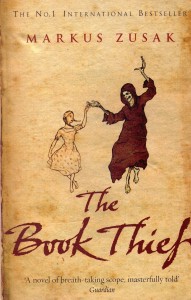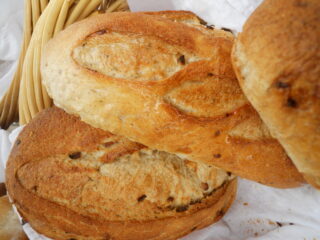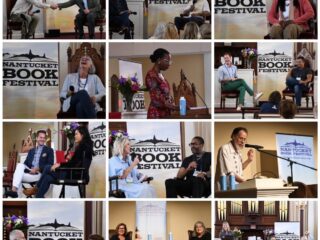A novel set in Nazi Germany and narrated by the grim reaper doesn’t sound particularly whimsical, but Markus Zusak makes the task seem natural, if not easy, in his novel The Book Thief. While not exactly light reading, the young adult story has proved its near universal appeal, spending over 230 weeks on the New York Times Bestseller List, causing some booksellers to reconsider the “young” label, re-shelving it under “fiction.”
As an obsessive reader of YA novels and a firm believer in the idea that story always trumps genre, I find the entire debate over The Book Thief‘s status rather pointless. Teenagers may enjoy this book, but why would anyone consider that an issue? Some of the greatest books written in the past ten years were written for children, including Rowling’s griping and clever Harry Potter series. In fact, I find many young adult novels to be more generous and uplifting (not to mention more entertaining) than so-called literary fiction.
But that’s not to say that The Book Thief lacks literary merit. While burdened with the heavy task of ferrying souls from the world of the living, Death is not entirely without humor or a sense of poetry. As he remarks early in the story, WWII is a particularly difficult time for Death. His job is quite taxing, and even this spectral figure is susceptible to haunting. One particular figure looms large in Death’s ancient memory: Liesel Meminger, the heroine of the story, a plucky Lutheran girl who is orphaned in the first chapter. Liesel’s mother, it is suggested, was killed by the Nazis for her communist leanings. Though too young to fully grasp the meaning of her mother’s disappearance, the loss of her family sparks in Liesel the first kindling of rebellion. It also causes to commit her very first crime: when standing in the graveyard where her young brother is to be buried, Liesel spots a book. Feeling unmoored by grief, she steals the dark volume, hiding it within her clothes.
She carries the book with her to her new home in a suburb of Munich. She meets her foster parents, a sharp-tongued woman named Rosa and an accordion-playing housepainter she comes quickly to know as Papa. It is Hans Hubermann, her brave and kind Papa, who draws Liesel out from the fog of mourning, pulling her slowly back into the real world through the power of words. Together, they slog their way through the book she took from the graveyard. Fittingly, this morbid find is none other than The Grave Diggers Handbook.
But that is just one of many books in Liesel’s narrative. Later, Hans gives her several novels, using his precious few resources to buy these treasures for his foster daughter. Liesel’s hunger for books can’t be sated with a few stories, however; true to the title, Liesel goes on to steal books from various sources, even grabbing one from a fire, where Nazi-banned books were set to be extinguished. She later “steals” books from an open window, evidently cracked just enough to let in a young, skinny girl, searching for kindness and an ounce of forgiveness.
The only book that plays a central role in the novel that Liesel does not steal is a copy of Mein Kampf. This deplorable piece of propaganda is twisted in Zusak’s narrative, transformed from its original purpose into a passport of sorts. Like The Grave Digger’s Handbook, the book serves to ferry a lost refugee from one world to another. With the help of directions scribed in Hubermann’s copy of Mein Kampf, a Jewish street fighter comes to reside in the Hubermann’s basement, where Liesel and he meet and form a bond that can’t be broken by all the armies in the world.
With a setting like this, it is difficult to imagine how The Book Thief could be anything but depressing, but Zusak illuminates the novel with scenes of brilliance. Small triumphs are made all the more beautiful by his prose. Childlike play is turned into something greater, a snowball fight in the basement is more than a frigid mock battle—it’s a moment that borders on magical. Again and again, Zusak’s characters strive to see the beauty in the world, bringing shards of happiness into the darkest, dirtiest corners. Tragedy will come, but first there will be foot races, stolen apples, hand-painted fairy tales, and shelves upon shelves of beautiful books. When all else is gone, the words remain; haunting even a tough customer like Death, but healing all the same.











